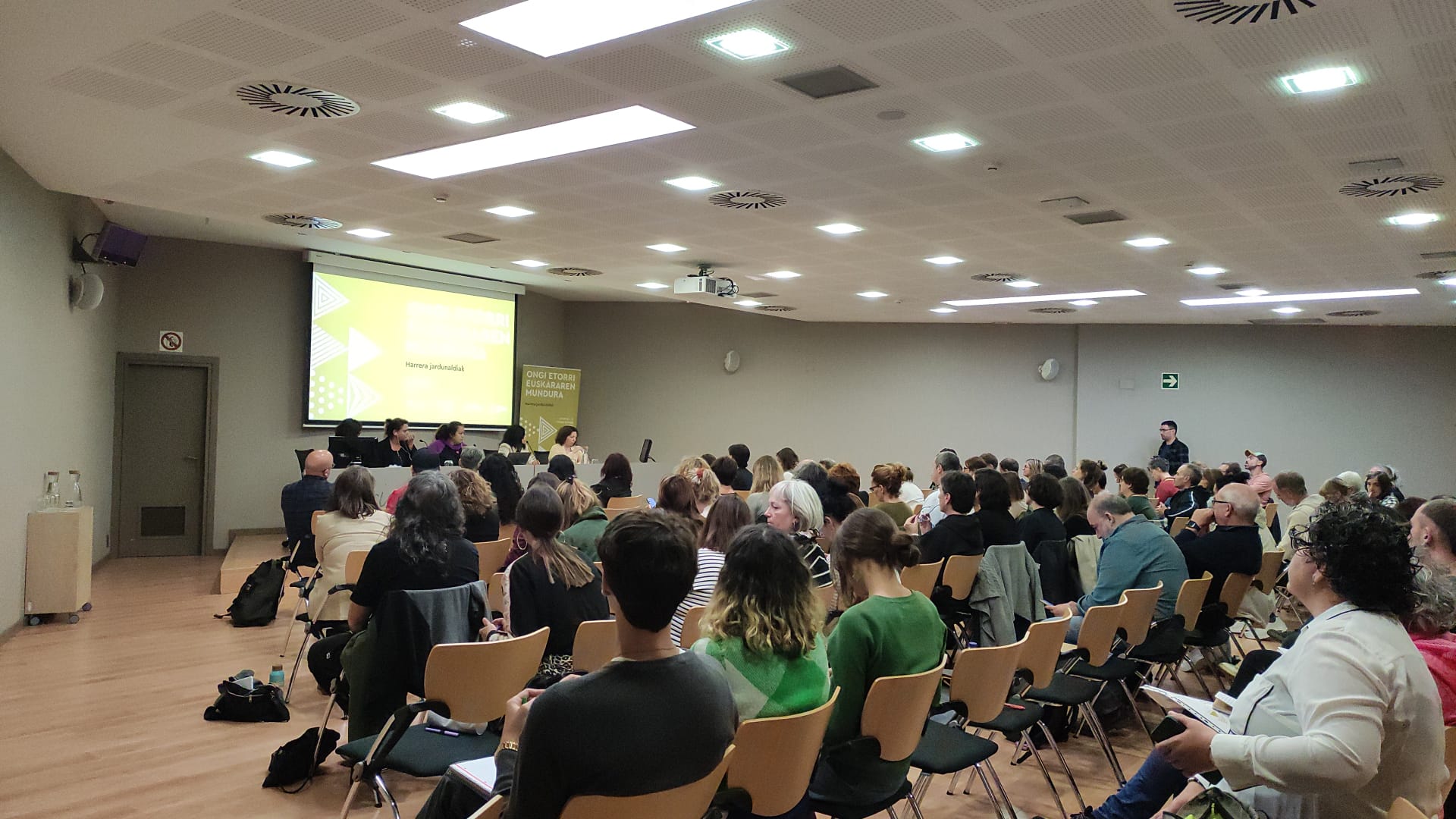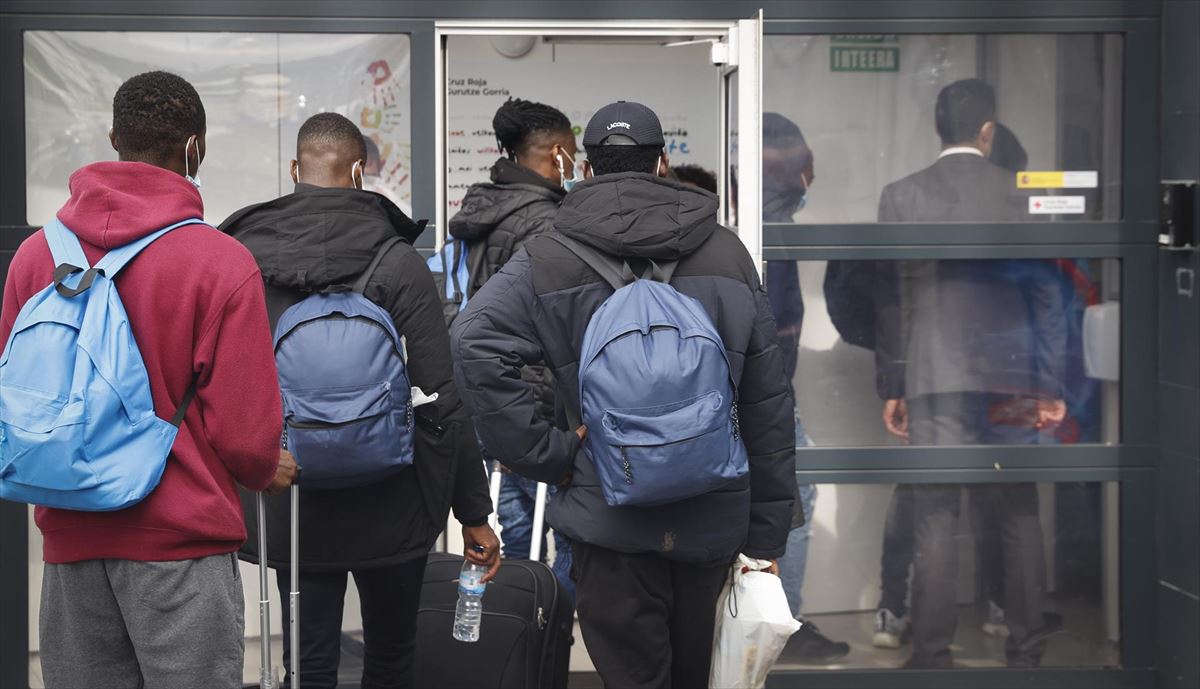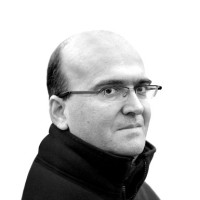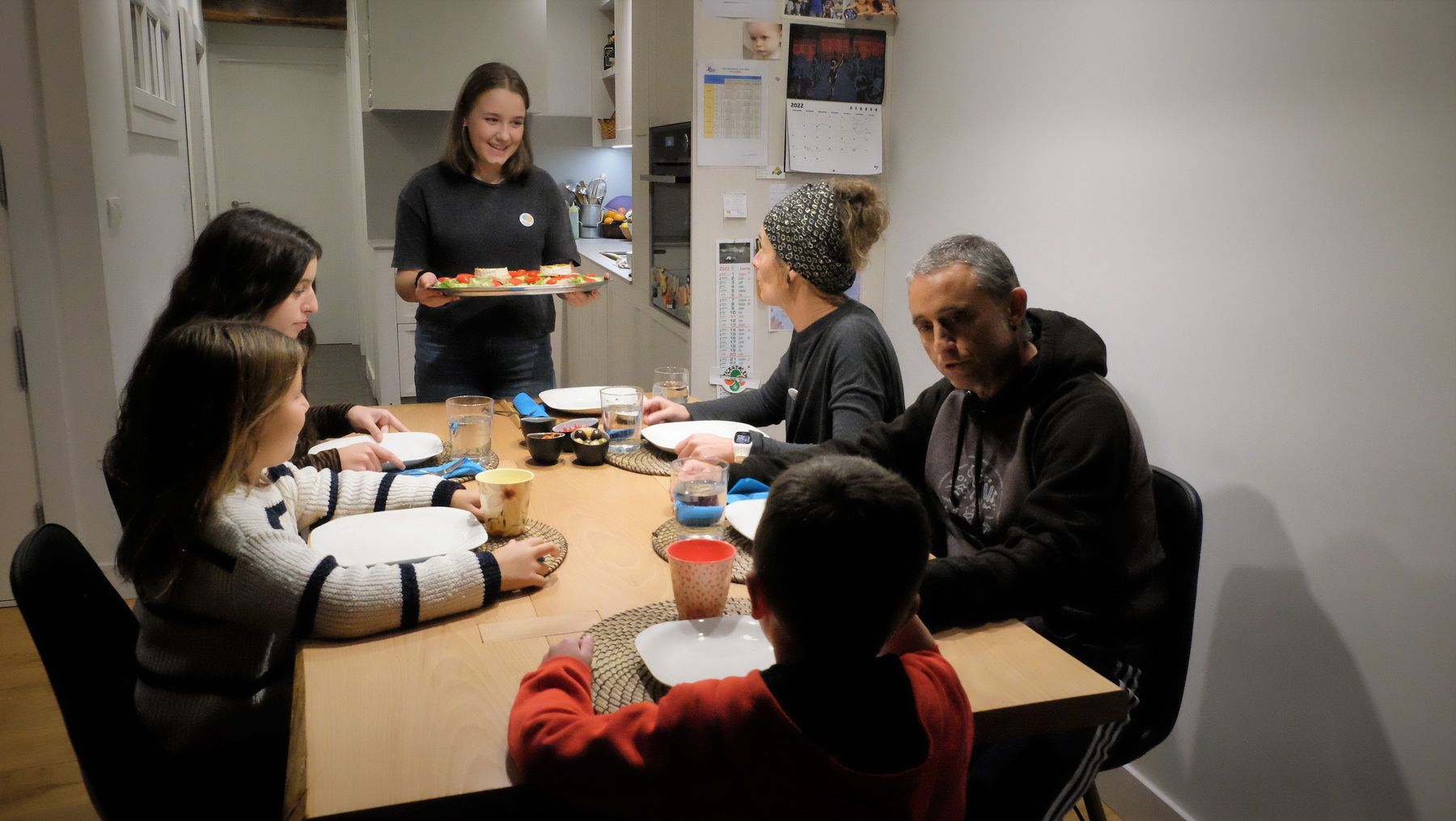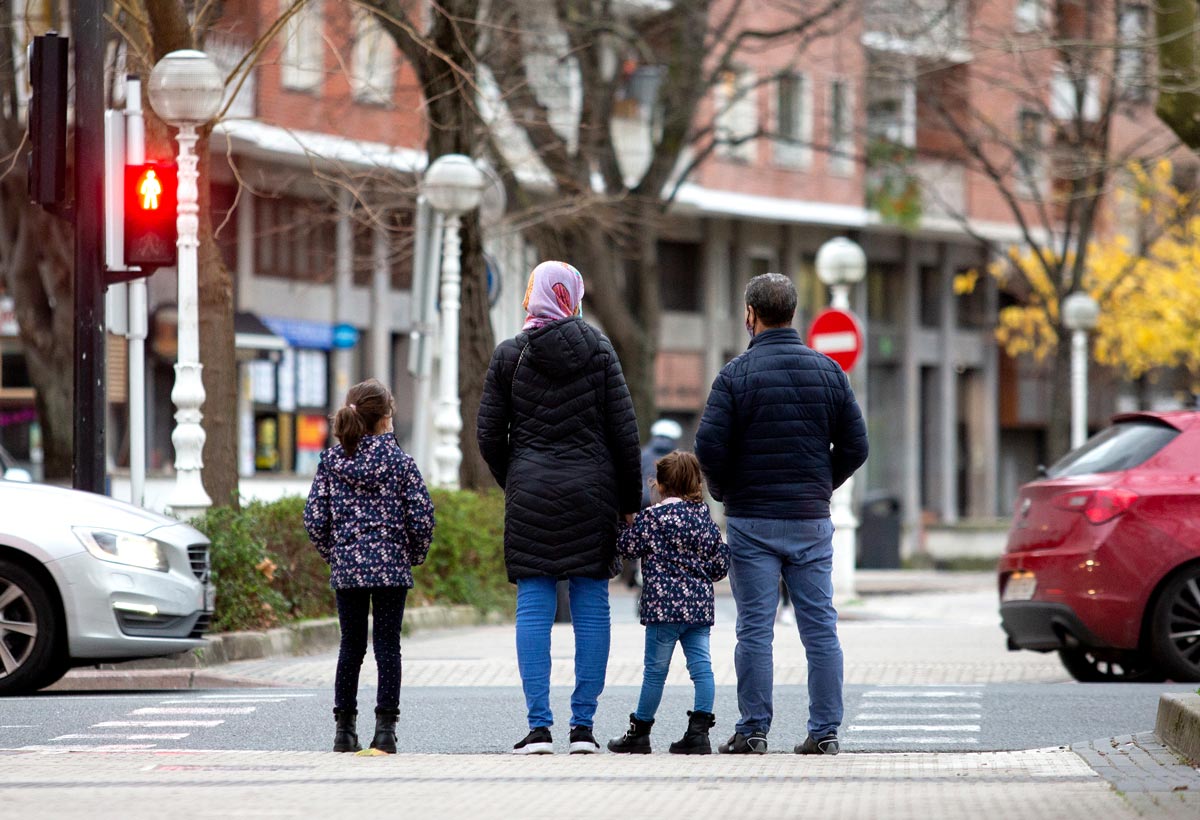Need to learn the language in a working environment
- The work has consisted in the analysis and/or elaboration of methodologies and standards for the teaching of languages to migrant people by the family physician of Osakidetza Aitor Montes, the translator Petra Elser and the vicelehendakari of the Platform for the Llenua Mireia Plana. They conclude that there are many resources, but there is a lack of will and systematization.

Petra Elser is a translator and social activist, a member of the Banaiz Bagara association. Elser has developed a wide variety of methodologies to teach Basque to adult immigrants. He has worked the work, the culture, the sport and others through the transmission of language: “There are a lot of people who accept that you can’t talk to immigrants in Basque. So many go to Spanish and only hire immigrants in jobs where the Basque
country is not necessary. For this reason, he believes that there are many migrants who feel that Euskera is of little use: “Behind that there are concrete systems and policies, and that makes us think that Euskera is an ornament.” Therefore, Elser's greatest challenge was to integrate Euskera in vocational training studies for adults. That is, learning Basque, but linked to professions and studies: “Immigrants have no chance of learning Basque in concrete contexts and in relation to what they really do.” To this
end, they were based on a number of methodologies carried out in Sweden. Migrant workers in charge of surveillance were dedicated to teaching Swedish for several hours, but after a year they saw that they did not learn the language because it had nothing to do with their work. From there came a project in Sweden to join the language work. The objective was to learn the language by reproducing the work done in the residences. They took the model and began to integrate into the Basque Country, such as hospitality, care and industrial work. “We got it only in a few weeks. This type of training should be taught throughout the year,” explains Elser. In addition, these were not training courses for these training centres, but other external funding or grants.
In Elser’s view, the issue is “to a large extent” political. In fact, there is methodology, but there is a lack of systematization: “There are very good proposals, but sometimes things are learned by inertia and they are focused on exams.” In addition, he believes that we must also work and raise awareness in the environment to learn Basque: “We will always hear the hegemonic languages in our environment, but not the minority languages, so we have to create that environment.” For this, it takes time to work, and says that “little by little”, it is useful to spend time explaining things in Basque: “The practice of the Basque Country in performing the work tasks can be an aid. It is clear that when there is an emergency at work it cannot be done, but when we are calmer we can go back to working the language.” In Wales, for example, it is a “very advanced” technique.
Pedro Elser: “Immigrants have no possibility to learn Basque in concrete contexts and in relation to what they really do”
The lack of health personnel in the Catalan
countries is an issue that is spreading to many territories. In the case of the Catalan countries, there are also problems in finding workers. Mireia Plana is vice-president of the Platform per la Llenguako (Platform for Language). As he explained, many workers from the Catalan countries are moving to other European countries in search of better living conditions: “That’s why we’re importing workers from other countries, especially from Spain and South America. Many stress that: ‘As we are in Spain, we will do it in Spanish’. Therefore, there are fewer and fewer workers to serve in
Catalan n.En 2023, the linguist Carme Junyent wrote the article Die-se in Catalan (Die-se in Catalan) before dying. He denounced that in the last years of his life he had “more and more difficulties” to be treated in Catalan. “In one of the hospitalizations, the doctor has asked me to speak in Spanish and I have asked him if he is not concerned that he cannot die in Catalan. He told me it was to take better care of me. Then comes the first ethical reflection: what language should be prioritized, that of the patient or that of the doctor?” he said in a passage of the article. “It is terrible that we have trampled our rights at the most vulnerable times,” the Plan has denounced.
This is not a matter that has come out of nowhere; he stressed that they have long complained that they are in a linguistic emergency: “The Government has already begun to take action, especially on health issues.” A language plan has been created for all staff in the public health system. Within this plan, free courses are held in working hours to learn Catalan through themes related to the trabajo.Tanto Spanish as Catalan
are Romanesque languages and have great similarities according to the Plan. For this reason, he believes that people willing to learn can learn “easily” and “quickly”. However, although this proximity sometimes helps, on other occasions it can also harm Catalan: “As they are very close, people ask us to do so in Spanish. But it’s not that, what’s at stake is linguistic rights.”
.jpg)
In addition, in 2002 the City of Cornellà de Llobregat launched the Linguistic Duo project (Euskal Herriko mintzalaguna or berbalaguna). Gradually it spread, so in 2003 the Generalitat of Catalonia assumed the leadership of the project. Through this project, they join people who are developing well from Catalan and are learning Catalan to practice for an hour. The aim is to be able to get out of the usual formal models and to be able to use Catalan on a daily basis. The plan designed for non-formal spaces was tested in the workplace, especially in health centers, and the Catalan speaking and speaking Spanish workers were put together to practice the language. “Linguistic couples have
been very successful because it is not only learning the words, but it is an opportunity to get to know a whole culture behind it,” says the Plan.Aitor Montes, family physician of Osakidetza, has analyzed language standards in Canada, the United States and here in the field
of Health. He has researched the models existing in other countries for the care and respect of their own languages and patients, and has reflected on whether they can be useful for the Basque Country: “The current public health system is based on national states, such as France, Spain and the United Kingdom. The status of a national state implies a language that makes the trajectory, training and socialization of health professionals happen in the main languages. It has not been called
into question.” It is becoming more and more common to live in the same territory with more languages. Montés has brought the example of the United States and told his vision. It explains how local health professionals have realized that there are more and more patients who do not know English or French, or who are not able to use correctly. To define these situations, they have invented the concept of language barrier – linguistic limits. According to U.S. standards, linguistic borders are the borders between patients who do not share language and health professionals: “States of power or nation limit language to be an instrument of communication, and they say that patients have a language limit and that it is a burden and an obstacle they bring.” As Montes has explained, these standards "place those who do not know English in
a very limited profile." The LEP Limited English Proficiency is one of the most striking names in the United States. “That puts the responsibility on the patient, because you are a person with limited English ability.” In the
United States, in addition to English, millions have Spanish as their mother tongue. For this reason, it is “strange” to not offer health care in Spanish: “They have done something to ensure communication, but the point of view is clear, everyone should know English, it is the imposition and assimilation of their cultural system. The Constitution does not make English the official language, but the educational process is in English.” Montes disagrees with these concepts and practices: “This is the model that has been most imposed or extended, but in our model it makes no sense. We should not follow that mold.”
.jpg)
It questions the place that small languages, like Euskera, have in these forms: “I can speak in Spanish, but I prefer to do it in Basque. The problem is not communication. I understand you, but what I need is empathy, closeness and comfort.” However, there are children who only develop in Euskera. In these cases, many parents have to work as translators: “They are often angry because doctors cannot communicate with the child. In the end they will learn Spanish, but that is also imposition.” In view of the translation model,
Montes
has proposed “linguistic parity”. This is a series of measures that have emerged in Canada and have also been extended to Wales. He believes it can be an example for the health system of the Basque Country. Although English predominates in Canada, they have two official languages, English and French: "They are clear that it is a right to receive health care in their language and that it is necessary to be able to provide quality service. Therefore, it is the responsibility and responsibility of the health system to act like this”. This model is
called Active offer, the active offer. In fact, the goal is to provide adequate care to the patient's needs: “You come with a need: distressed, distressed, worried, asking for help, or who knows. The system must cope with this situation and offer the service in your language without your request.” Despite having valid models, it is difficult for them to put these types of projects into practice, as in
Euskal Herria, Canada, which has an important gap for health professionals. That's why they're trying to bring Canada to French doctors from Southern Africa: “If all doctors
are transferred to Canada, what will happen next in Africa?” Montes considers that there is a risk of reproducing this model in the Basque Country, as there is no capacity to have more professionals in the market: “We will start importing professionals who know Spanish. What if they arrive in Galicia, the Catalan Countries or the Basque Country?” Precisely, earlier this year, Osakidetza announced another measure for the selective processes of doctors and nurses. According to this measure, Osakidetza will hire doctors and nurses from outside the European Union in 55 specialties to deal with the lack of personal.En
July 2021, Unai Brea interviewed Cosme Naveda, president of the Association of Physicians of Bizkaia, in his weekly article Lack of Doctor, threat of future, and highlighted the reasons for the lack of prestige of doctors:
.jpg)
In the case of new workers, Montes has two clear measures to take. On the one hand, he considers that it is necessary to explain in the reception protocols where they are, what health system it is, how they work, that there are patients who prefer the Basque country and that it must be respected, and many other things. Moreover, he says that linguistic training should be offered: “I’m not saying you have to learn something to get the EGA out, but you do the basic things and know what resources there are.” Montes has warned that, in addition to the fact that language rights are at risk, the public health system in
general goes “to the shit”: “When we have started to ask for the Basque country, the public health system has begun to be destroyed. Today, it may not be possible to receive effective care in both Spanish and Basque”. However, he considers that betting on Euskera is to focus on strengthening the public health system: “5% of the inhabitants of Canada are French speakers and yet they have managed to be served in French. In our case, we will not ask for it in Basque, because we have recognized that it is impossible to receive care in Basque. Seeing the data of Canada should not be impossible to attend in Basque in Vitoria, Estella (Navarra) or Tafalla (Navarra)”. He
stressed that there are “many” resources to promote a public health system and Euskaldun: “We could have been world leaders, but management has been unfortunate and there seems to be no will to strengthen the public health system.”
In Germany, there are
integration courses under the name Integrationskurs. The aim of these courses is to provide foreigners with tools to learn about life in Germany, explaining the legal, political, cultural and social system of Germany, and teaching them German. “In principle, you must do so before you start working or regularize your situation,” explains Petra Elser. They are six months in duration and offer the basic language skills. These are free courses, although the German Government has halved funding by 2025. Member of the management of the German Federation of Trade Unions (DGB), Anja Piel, denounced that such measures “further harm” migrants: “Unfortunately, it is the immigrants who have precarious, precarious jobs and low wages.” According to studies by the Federation, 20% of migrants living in Germany are concerned about the future of work,
compared to 13% of those born. The temporary employment contract has three times the immigrant population. In addition, 40 per cent of migrants have very low incomes or are not enough to live.
Daniela Ponce (Nicaragua) is a housekeeper and caretaker who works in Madrid and Barcelona. At the age of 19, she went to a house in Germany to take care of the children. It is not clear whether he participated in any of these Integrationskurs or in any of them. However, every day, after taking care of the children in the morning, I was going to study German. “The homeowners took care of all the roles and stressed the importance of learning.” Then you have an interview with him.
“The learning of the Basque Country should be as important as socio-sanitary training”
Daniela Ponce, caregiver
.jpg)
Although he understands almost everything, Daniela Ponce is hard to speak Basque (Nicaragua, 1974). She is a domestic and care worker, and I would like to learn Euskera, but because of the long working hours it is impossible for her. As many of those engaged in surveillance have free Saturdays, in Zaldibia (Gipuzkoa) they have long wanted to organize a group to receive Basque classes on Saturdays: “We’ll keep fighting until we get there.”
How did it get to Euskal Herria?
As is now the case with the political crisis, at one time many people were leaving Nicaragua. We all went to Spain; for us there was no Basque Country. They tell you that you will live well and that you will charge well. It looks like a dream, but then you see that reality isn't that easy. We come with enthusiasm for working, because we are told that EUR 1,000 is being paid. For us, before, EUR 1,000 were many in Nicaragua, today it is very little because everything has been hurt.
First I arrived in San Sebastian, but I was very little, because renting a room costs 270 euros. By 2008, it was a lot. In addition, I wasn't used to living with so many people. A woman on the floor asked me to sign up for the Caritas job bag. I signed up and started caring for a man in Zaldibia.
What was the job like?I
didn't actually have a salary, as I was for the accompaniment, but they offered the possibility to register, a small financial aid and accommodation. In these circumstances, we take the first thing that comes out. After all, we arrived with the tourist visa and then we became irregular. You should take that yes or yes, because there is no other option.
Did you have the first contact with the Basque Country?
I met the reality of Euskaldun and saw that there was another language. Until then, in Donostia, as they only spoke to me in Spanish, I noticed no difference. At Zaldibia the situation changed radically, as she did not stop listening to Basque. A man helped me especially and encouraged me to learn Euskera, but it was impossible because I was working all day. However, I learned basic phrases, like Kaixo! Good morning, how are you? And things like that.
“Most of the people we work as caregivers have asked for classes on Saturdays as we have free, but we haven’t done it.”
Did you receive training to learn Basque?
No. After that, I went to a house in Errenteria. There were a number of standards to live there, among which we were told that we had to do several courses, for example, to be a waitress or a geriatric assistant. However, they did not offer us the possibility of learning Basque. We decided to do geriatrics because there are so many elderly people. Then I returned to a hamlet of Zaldibia, where everyone spoke in Basque.
Did it help you learn the immersion in Basque?
There, I learned more Basque, because I was a resident household employee. That's what interested me. Therefore, I tried to learn through everyday things, for example, how to say cider in Basque or practical things. Gradually I completed the dictionary, and in 2015 I decided to do a course in the house of culture. As for the schedule, I felt good, because I asked for permission for two hours to study. However, it lasted a short while, right after the beginning of the course, and because I was regrouping my family, I was given permission to go and find my children. On my return, the health of the women I cared for was reduced and I lost those hours of
permiso.Las people who perform care tasks report that among many things you do not have free time. Do you have any place to learn Basque with this kind of schedule?
We have to do many hours to get an approximate living wage; otherwise, it is impossible. At Zaldibia, for example, it is impossible for us because we are running late. I, for example, am working until 19:30. Since most of the people who work as caregivers have free Saturdays, we have asked for classes on Saturdays, but we have not succeeded. We would be very grateful if we could make things a little easier. It is very difficult for us to take part in Euskera courses, because we have very slave hours in many cases, and let us not say anything in the case of resident household employees. They do not have a
minor hueco.El of the children was born in the Basque Country and the other two came when they were teenagers. Have you noticed differences in the Basque learning process? The youngest
has learned from a young age and identifies very well when to use each language. I learn a lot from him. As the oldest was 16 years old, he studied Euskera in the Euskaltegi for six months before the beginning of the next course, and then developed very well in the institute. He was a very good student and had excellent results except in the Basque subject. Of course, it cost him more. The Basque teacher did not help at all. The average, for his part, could not enroll in the Euskaltegi, as he was 15 years old, but the Euskera professor helped him a lot. All three of them get along very well. On many occasions, other parents insist that children learn Basque immediately, and they ask me when I am going to study. If you knew the number of hours I do, you wouldn't ask when I'm going to learn Basque.
You've also lived in Germany. You've studied German and you've known another model. What was the experience like?
When I was very young, I went to live in a family's house and take care of the children. In the mornings I was taking care of the children and in the evenings I was going to study German. I don't know why very well, but the parents of the children took care of organizing everything. They told me it was mandatory to go to German every afternoon. They underscored a lot and attached a lot of importance to education. At first I didn't understand anything, but in the end I learned. Moreover, I had no choice. It was a very nice experience.
Do you think that the way we teach language in Germany can be an example to learn Basque?
I think it can be useful. We have to meet a number of requirements to work, among which we have to have socio-health training. I believe that the knowledge of Euskera should be as important as socio-sanitary training. For example, the loss of the mother tongue will be very difficult for people with dementia, and the mother tongue of most people around us is the Basque language. So how will we communicate with these people if they lose the ability to speak in Spanish and only speak in Basque? Being able to attend in your language is part of care.
Harrera-herri euskaldun nola izan gaitezkeen galdetu zion Leire Amenabarrek bere buruari eta parean zituenei iaz, Gasteizen, harrera-hizkuntzari buruzko jardunaldietan, eta galdera horrexetan sakontzeko elkartu gara berarekin hilabete batzuk geroago. Amenabarrek argi du... [+]
Euskalgintzaren Kontseiluak antolatutako "Ongi etorri Euskararen Mundura" jardunaldiak izan dira Gasteizen ostegunean eta ostiralean. Egun bi bete-beteak, eta mahai gainean Euskararen normalizazio prozesuan euskal herritar berriak integratzeari buruzko praktikak... [+]
Among many falls, there are also achievements. A young mother of about 35 years old asked me the other day how they could get in their school that the classmates who had not received Euskera at home learn and speak as well as the boys and girls who were Euskaldunes at home. In... [+]
“How are you?”
“Bad, bad. Subject to machine.
“You’ll turn it around because you’re tough.
I don't know. Now I don't know.
This was the last interview with his American uncle. He was a pastor to Nevada, where he founded his family, his new life. They have come from... [+]
UEMA, the Commonwealth of Basque Municipalities, presented to the media last month a campaign under the motto Egin nirekin euskaraz. Families have emerged that do not originate in the Basque Country, along with representatives of UEMA. They say that we Euskaldunes often approach... [+]
We learned by publishing the results of the last sociolinguistic survey of the Basque Country in Navarra: Since 2011, the Foral Community has strengthened its attitude against the promotion of the use of Euskera and weakened the most favorable. In Basque Country, seeing people... [+]












.jpg)
